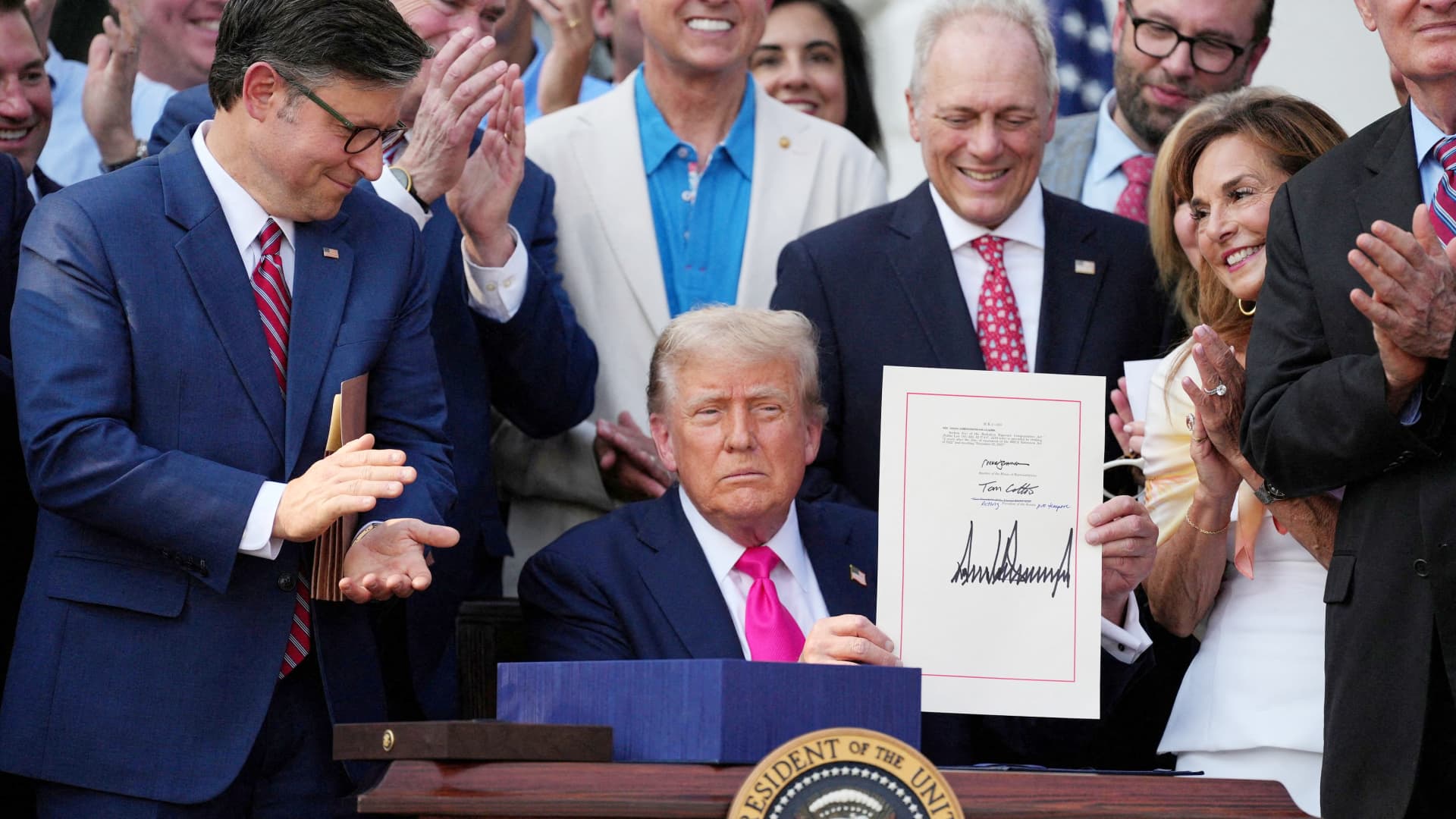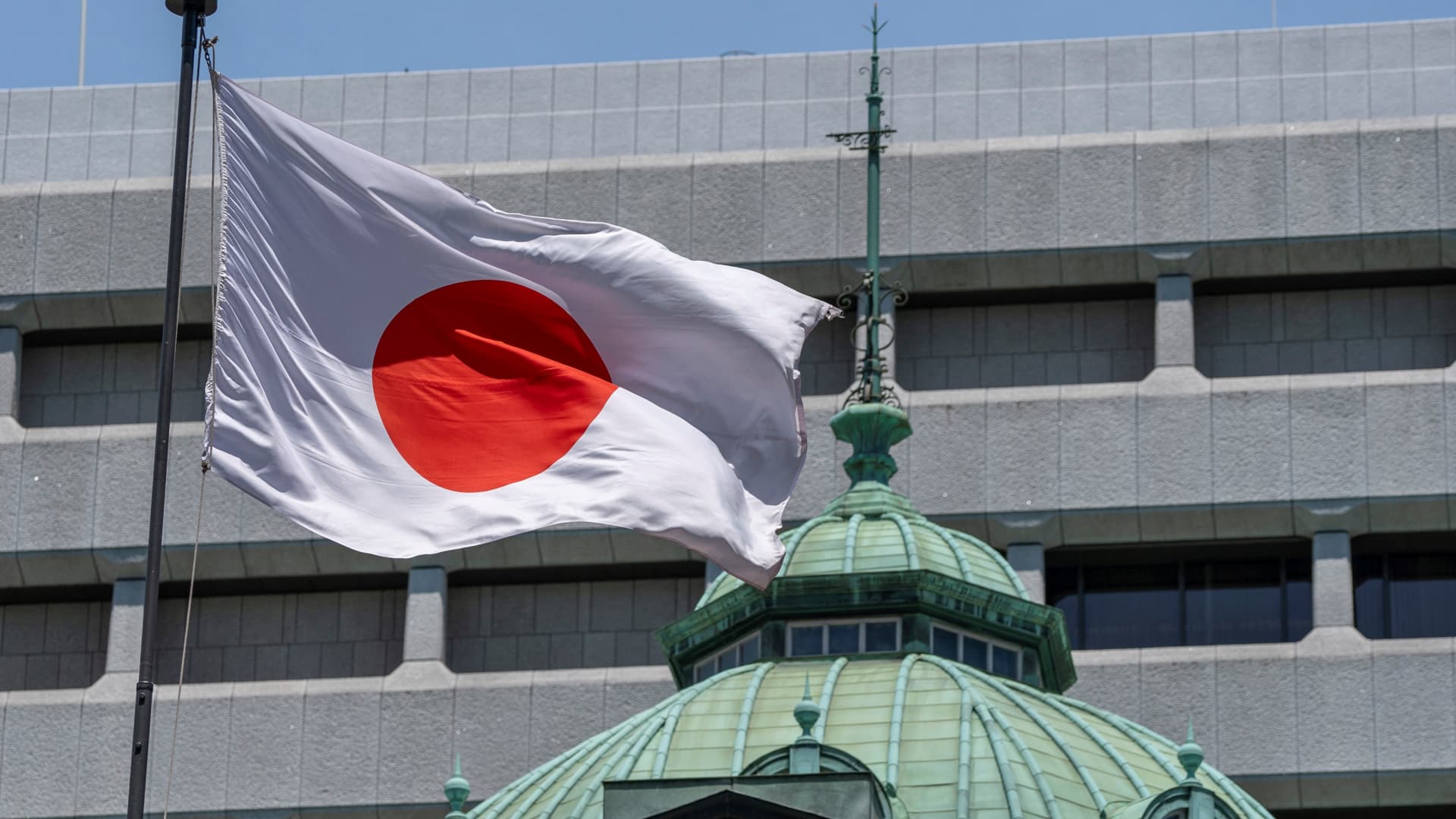
Passed earlier this month, the legislation extends Trump’s 2017 tax cuts and includes additional provisions that impact deductions, overtime pay, charitable giving, Medicaid and more. Some of the bill’s provisions may have unwelcome side effects, CNBC’s Jon Fortt reports.
College endowments
For universities with smaller endowments, the tax rate will remain the same. But for schools with endowments between $750,000 and $2 million, the rate will increase to 4%. That doubles for universities with endowments greater than $2 million.
Schools with fewer than 3,000 tuition-paying students will be exempt from the tax.
“The tax increase will impact some of the top research universities in the country,” CNBC’s Sharon Epperson said. “Experts say the higher tax will hit about 15 schools. In 2023, 56 universities paid about $380 million under the endowment tax.”
It’s possible that universities may also try to modify their endowment strategies to avoid the tax hits, Epperson added, potentially by offering more scholarships to reduce the number of tuition-paying students to reach tax-exempt status.
Charitable giving
The bill also has ramifications for charitable giving that could impact individual philanthropic decisions.
Charitable giving increased to a record $590 billion last year, according to CNBC’s Robert Frank. The new charitable deductions are aimed at encouraging everyday Americans to give more – but they also have consequences for the wealthy, who constitute a large portion of that record giving.
“Now to pay for that, it requires itemizers, i.e. the wealthy, to exempt from their charitable deduction the first half a percent of their gross income,” Frank said. “So if you’re lucky enough to make a million bucks a year, your first $5,000 given to charity cannot be deducted at all.”
The megabill also limits charitable deductions for earners in the top tax bracket, which could disincentivize America’s wealthiest donors.
Federal deficit
The Congressional Budget Office has estimated that the bill’s provisions would add more than $3 trillion the deficit.
Republicans and the Trump administration dispute that, however, and insist that the baseline for the total cost of the bill should presume that the tax cuts which are being extended now were always going to be extended. They argue that the cost of extending the cuts should not be factored in to the overall cost of the GOP bill.
But unless the tax cuts had been extended with a new bill like this one, they would have expired at the end of this year. And the cost of not letting them expire, specifically all the tax revenue that will not be collected by the federal government, because people got tax breaks — adds up to trillions of dollars over 10 years, according to the CBO.
Experts say there needs to be one universally accepted standard for tax cut and deficit projections, however.
“I think the irony of this, and what really demonstrates how disingenuous that argument is, is that at the same time in this new tax bill, there are a number of new tax cuts on tips and overtime and other things, all of which would expire and all of which they don’t assume are permanent when it comes to costing them out,” said Maya MacGuineas, president of the Committee for a Responsible Federal Budget.
“So the bottom line is, if you’re going to add, say, $4 trillion in borrowing, you either need to recognize it when you create the tax bill or when you extend the tax bill, but you can’t switch how you account for it in the beginning and at the extension time, and then pretend it’s free,” MacGuineas added.
For more on how the spending bill is affecting Americans in each facet of spending, tune into CNBC’s Special Report.















Leave a Reply